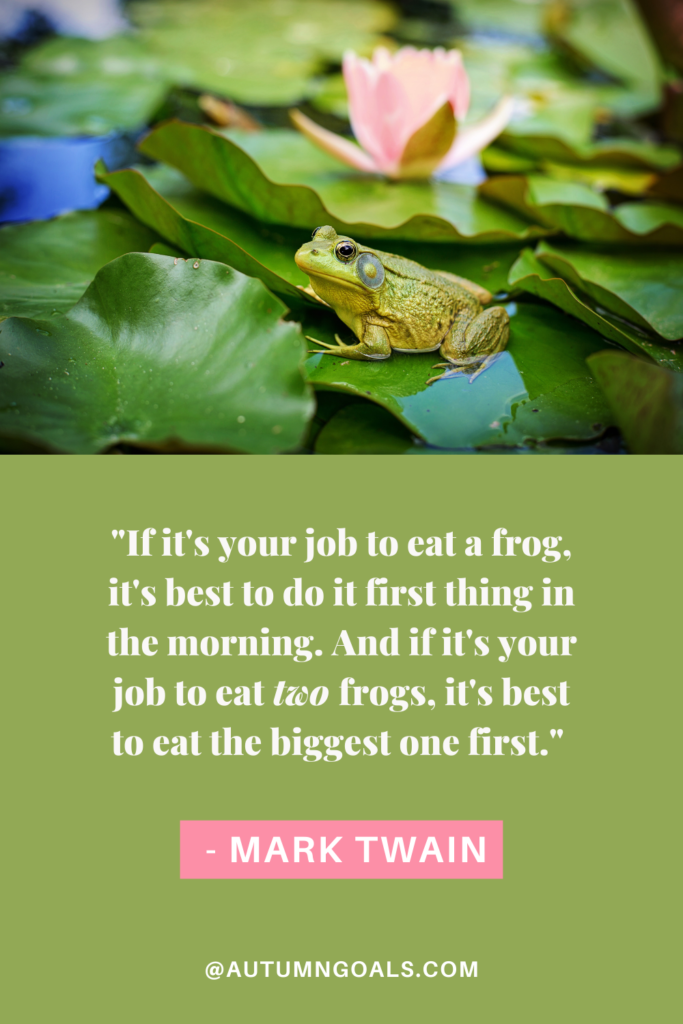
Photo by Charlz Gutiérrez De Piñeres on Unsplash
Overcoming the Habit of Procrastination to Achieve Your Goals
Procrastination is a familiar foe for many of us, a habit that seems to plague even the most driven individuals. It’s that sneaky tendency to put off important tasks in favour of less demanding ones or, worse, mindless distractions. While procrastination might offer temporary stress relief from looming responsibilities, it ultimately causes a cascade of negative consequences, from health issues to regret and unhappiness. In this article, we will delve deep into the world of procrastination, exploring what it is, why it happens, and, most importantly, how to conquer it on your journey to goal achievement.
Procrastination: The Habit We Love to Hate
Procrastination is a habit.
At its core, procrastination is nothing more than a habit—a habit of avoiding tasks we’ve committed to, often with no good reason, despite knowing that our actions (or lack thereof) will yield negative consequences. This habit manifests as an ingrained pattern of behaviour, one that can be challenging to break free from.
Procrastination as Stress Relief
It’s essential to recognize that procrastination often serves as a form of stress relief from other stressors in our lives. When we’re confronted with tasks that induce feelings of dread, incompetence, or insecurity, we instinctively seek to escape those negative emotions. Procrastination, in this context, becomes an escape route—a way to temporarily alleviate the stress associated with the task at hand.
However, this escape is short-lived and, in turn, compounds our stress levels as deadlines loom and guilt sets in. It’s a vicious cycle that ultimately leads to more significant problems, both emotionally and physically.
Procrastination’s Toll on Health and Well-being
Procrastination doesn’t merely affect our productivity; it takes a toll on our health as well. The stress caused by putting off important tasks can lead to a host of health issues, ranging from increased anxiety and depression to feelings of shame and even physical ailments associated with high stress levels. Recognizing these consequences is vital if we hope to overcome procrastination and reclaim our well-being.
The Emotional Underpinning of Procrastination
Procrastination is, at its core, an emotional issue. The primary emotional barrier that drives procrastination is fear—fear of failure, fear of the unknown, fear of not measuring up. It’s these negative emotions that cause us to avoid tasks we perceive as threatening, leading to procrastination.
The Vicious Cycle of Procrastination
Understanding the psychology of procrastination involves dissecting the cycle that perpetuates this harmful habit:
1. Habit Trigger: Something in our environment or thoughts causes stress. This can be an approaching deadline, a challenging project, or even a simple task that we dread.
2. Response Pattern: In response to this stress, we avoid doing the task altogether. This is the procrastination phase where we choose short-term comfort over long-term goals.
3. Reward: By procrastinating, we temporarily relieve some stress, even if it’s just the illusion of relief. This temporary relief reinforces the habit and makes it more challenging to break free from.
Breaking the Procrastination Cycle
To overcome procrastination, we need to disrupt this cycle. Here are steps to help you conquer procrastination and regain control over your goals:
1. Identify the Trigger: Start by recognizing what triggers your procrastination. Is it the fear of failure, the feeling of being overwhelmed, or a lack of interest in the task at hand? Understanding the root cause is the first step to conquering procrastination.
2. Acknowledge the Stress: Instead of escaping from stress, acknowledge it. Understand that stress is a natural response to challenging tasks and can be a source of motivation and growth.
3. Interrupt the Procrastination Habit: When you catch yourself procrastinating, consciously interrupt the pattern. Challenge the impulse to avoid the task and replace it with a commitment to take action.
4. Take a Small Step: Even when facing a daunting task, commit to doing just one small thing related to it. This could be as simple as drafting an outline, making a to-do list, or researching the topic. Starting often paves the way for continued progress.
5. Just Start: Often, the most challenging part of a task is starting it. Once you begin, you’ll often find it easier to keep going. Remember the wisdom of Mark Twain: “If it’s your job to eat a frog, it’s best to do it first thing in the morning.” By tackling the most challenging task first, you’ll free your mind for more enjoyable activities – instead of worrying about it all day long.

Additional Strategies to Overcome Procrastination
In addition to the steps outlined above, there are various strategies and techniques that can help you conquer procrastination:
1. Identify Your Underlying Fear: Take time to journal mindfully about your procrastination triggers. Name the fear that underlies your procrastination. Bringing it into the light of awareness can help you address it.
2. Address and Reduce Negative Emotions: Break down larger tasks into smaller, more manageable pieces. This can make them feel less overwhelming and reduce the negative emotions associated with them.
3. Remove Temptations for Distraction: Create a workspace free from distractions. This may mean silencing your smartphone, blocking social media, or finding a quiet place to work.
4. Adopt a Professional Identity: Embrace the identity of a professional committed to your goals. For example, if your goal is to prioritize health, tell yourself, “I am healthy, so I love to exercise daily.” This shift in identity can drive your behaviour.
5. Strengthen Goal Intentions: Ensure your goals are rooted in strong, positive reasons. Weak or negative intentions are more susceptible to procrastination. Understand why your goals matter to you on a deeper level.
6. Habit Stacking: Make tasks easier to complete by pairing them with established habits. For example, listen to an educational podcast while working out at the gym, effectively stacking two beneficial habits.
7. Time Blocking: Schedule specific time slots on your calendar for tasks and activities. When you allocate dedicated time to a task, it becomes easier to prioritize and complete.
8. Embrace the “Two-Minute Rule:” If a task will take you two minutes or less to complete, do it immediately. By addressing small tasks promptly, you prevent them from piling up on your to-do list.
9. The 3-2-1 Rule: When motivation is lacking, count from three to one and take action. This simple technique leverages psychological momentum, often leading to inspiration and motivation as you start moving.
10. Declutter Your Environment: Both physical and digital clutter can be distractions that fuel procrastination. A tidy workspace and streamlined digital life can help you focus on your tasks.
11. Limit Social Media: Excessive participation in social media can be a significant distraction. Consider setting strict boundaries to minimize its impact on your productivity.

In conclusion, procrastination is a habit that plagues many, but it’s not insurmountable. By recognizing the emotional underpinnings of procrastination, understanding the vicious cycle it creates, and implementing strategies to break free from it, you can regain control over your goals and enhance your productivity and well-being.
As Tony Robbins wisely said, “The path to success is to take massive, determined action.” Overcoming procrastination is a vital step on that path. So, identify when you’re procrastinating, address it head-on, and watch your productivity soar and your goals come within reach.

RELATED POSTS
View all



